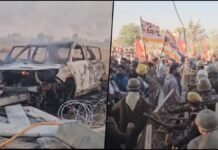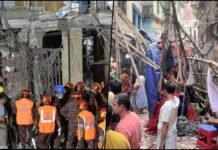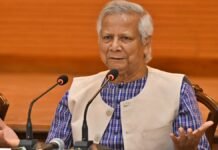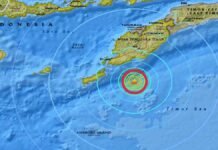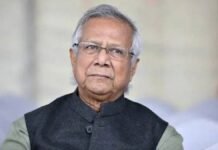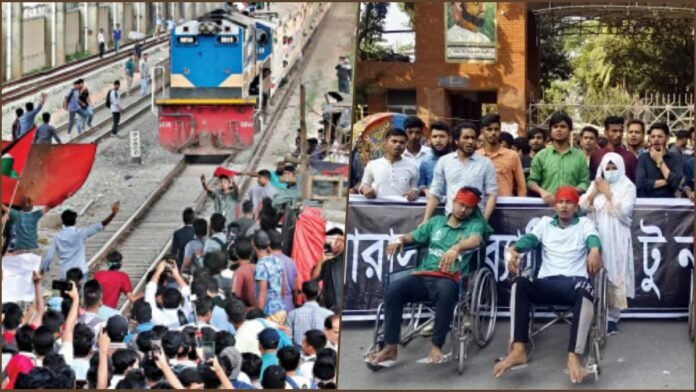
Key Highlights:
- Massive Protests in Dhaka: Thousands of students from Titumir College block railway tracks, demanding university status for their institution.
- Train Services Suspended: Rail operations on the Dhaka-Tongi-Dhaka section have come to a complete halt, disrupting transportation nationwide.
- Army Deployed: Four units of the military and Border Guard Bangladesh (BGB) have been deployed in Dhaka’s Mohakhali area to control the escalating unrest.
Dhaka: Bangladesh’s capital, Dhaka, is witnessing widespread disruption as thousands of students from Titumir College have taken to the railway tracks, demanding that their college be upgraded to a university. The protest began on Monday at 4:15 PM and has since paralyzed train services on the critical Dhaka-Tongi-Dhaka route, leaving commuters stranded and rail operations suspended indefinitely.
The situation has become so dire that the interim government, led by Nobel laureate Muhammad Yunus, has deployed four units of the army and Border Guard Bangladesh (BGB) in the Mohakhali area to manage the escalating crisis. Despite this, students remain adamant, refusing to vacate the tracks until their demands are met.
Students’ Demands and Determination
The protesting students have declared that their movement will continue until the government officially grants university status to Titumir College. Ali Ahmed, a student leader spearheading the protest, stated:
“Until Muhammad Yunus or the education advisor declares Titumir College a university, we will not leave these tracks. We regret the inconvenience caused to the public, but this is our only way to make our voices heard.”
The students have also warned that if their demands are ignored, they will intensify their protests further. This has raised concerns about potential violence and further disruptions in Dhaka and beyond.
Nationwide Rail Disruption
The blockade has brought train services across Bangladesh to a grinding halt:
- Trains are stranded at key stations such as Tejgaon and Airport Railway Station, causing significant delays for passengers.
- Rail connectivity between Dhaka and other parts of the country has been completely severed.
- Many commuters have turned to buses for transportation, but overcrowding at bus terminals has led to chaotic scenes and even physical altercations.
Government Response: Army Steps In
In response to the escalating unrest, the interim government has taken drastic measures:
- Four army contingents and Border Guard Bangladesh units have been deployed in Mohakhali to maintain order.
- Railway police have halted all train operations on affected routes as a precautionary measure.
- Authorities are closely monitoring the situation but have yet to make an official statement addressing the students’ demands.
A senior railway police officer described the situation as “tense,” with train drivers refusing to operate out of fear of attacks by protesters.
Impact on Public Life
The protests have caused widespread disruption across Dhaka:
- Commuters are stranded at railway stations with no clear timeline for when services will resume.
- Overcrowded buses are leading to scuffles among passengers trying to secure seats.
- The unrest is creating ripple effects across other sectors, with businesses reporting delays in supply chains due to halted rail services.
Additionally, tensions are rising across Dhaka as fears grow that prolonged protests could lead to further instability.
A Threat to National Security?
The situation has sparked concerns about broader implications for Bangladesh’s security and governance:
- The deployment of military forces highlights the severity of the unrest and its potential threat to public safety.
- The interim government’s ability to manage such crises is being closely scrutinized as tensions escalate in other parts of Dhaka.
What’s Next?
With no resolution in sight, all eyes are on Muhammad Yunus and his interim government for decisive action. The next steps will likely determine whether this protest remains localized or spirals into a larger national crisis.
For now, Dhaka remains paralyzed as students hold their ground on the tracks, forcing a nation to grapple with one of its most significant transportation disruptions in recent memory.

















